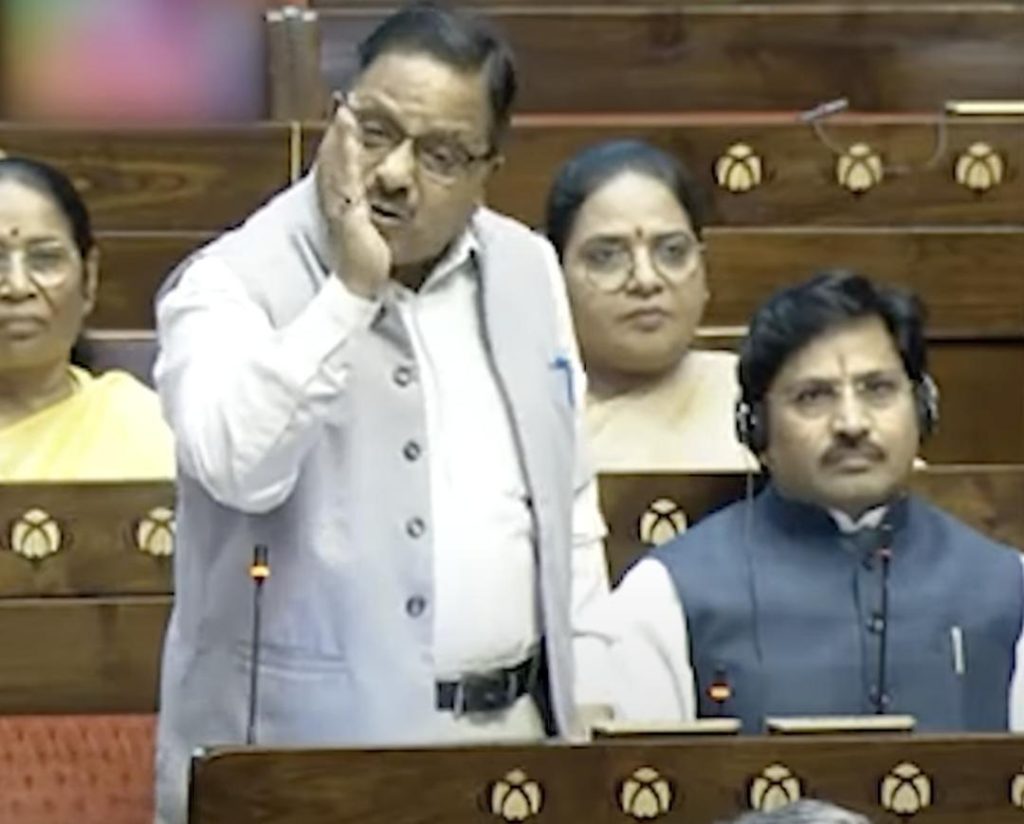
Should I Read Quran and Tell You What’s Written in It: BJP MP Radha Mohan Das on Waqf Bill
The Waqf Bill, aimed at regulating and managing the properties held by the Waqf Board in India, was recently discussed in the Lok Sabha. The debate sparked a heated conversation, with BJP MP Radha Mohan Das questioning the authenticity of the Waqf Board’s claims about its properties. In a surprising turn of events, Das asked if he should read the Quran and share its contents with the House. This provocative remark has raised eyebrows and sparked debate among Muslims and non-Muslims alike. In this blog post, we’ll delve into the context of Das’s statement, explore the implications of his words, and examine the validity of his claims.
During the discussion, Radha Mohan Das questioned the Waqf Board’s management of its properties, citing the absence of written records. He pointed out that the Quran stipulates that even a small donation of a rupee should be accompanied by a written record. Das then referenced the Quran to support his argument, saying, “The Quran says that even if one rupee is given to anyone, there should be a written record…And you say you have so many properties without a record.” This statement has been met with both criticism and support from various quarters.
On one hand, Das’s statement has been seen as an attempt to undermine the Waqf Board’s authority and legitimacy. Many have accused him of using Islamophobia and making irresponsible comments that could incite hatred and intolerance. The Waqf Board, which manages properties worth millions of rupees, has been criticized for its alleged mismanagement and lack of transparency. Das’s remarks have been seen as a way to capitalize on these perceived shortcomings and create distrust among the public.
On the other hand, some have defended Das’s statement, arguing that it was a legitimate question and a call for accountability. They point out that the Waqf Board’s properties are managed using Islamic principles, and that Das was simply seeking clarification on the basis of these principles. They also argue that Das’s statement was not intended to offend Muslims or Islam, but rather to highlight the importance of transparency and accountability in the management of these properties.
It’s worth noting that Das’s statement was not an isolated incident. In recent years, there have been several instances of Hindu nationalist politicians making provocative comments about Islam and the Quran. These comments have often been met with outrage from Muslims and human rights groups, who argue that they are intended to create division and hatred.
The implications of Das’s statement are far-reaching and multifaceted. Firstly, it has raised concerns about the safety and security of Muslims in India. The statement has been seen as a way to legitimize Islamophobic rhetoric and create an environment of fear and hostility towards Muslims. This is particularly worrying in the current political climate, where Muslims have been targeted by vigilante groups and face increasing discrimination.
Secondly, Das’s statement has highlighted the need for greater understanding and education about Islam and the Quran. Many non-Muslims in India have limited knowledge about Islamic principles and practices, which can lead to misunderstandings and stereotypes. Das’s statement has created an opportunity for Muslims and non-Muslims to engage in dialogue and learn from each other.
Lastly, the statement has also raised questions about the role of religion in public life. Das’s statement was made in the context of a parliamentary debate, which raises questions about the appropriate role of religion in public discourse. While it’s important to respect the religious beliefs and practices of all individuals, it’s equally important to ensure that religious beliefs are not used to justify discrimination or hatred.
In conclusion, Radha Mohan Das’s statement about reading the Quran and sharing its contents has sparked a heated debate in India. While some have criticized the statement as Islamophobic and divisive, others have defended it as a legitimate question about accountability and transparency. As we move forward, it’s essential to promote greater understanding and education about Islam and the Quran, while also ensuring that religious beliefs are not used to justify discrimination or hatred. By engaging in respectful dialogue and promoting tolerance and inclusivity, we can create a more harmonious and peaceful society for all.
News Source:






